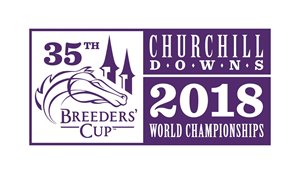Breeders' Cup Completes Testing Program for 2018 Event


Breeders' Cup completed an extensive out-of-competition pre- and post-race testing program at this year's Breeders' Cup World Championships at Churchill Downs, Nov. 2-3, which included the testing of 289 horses. All post-race samples collected from the starters were cleared by Industrial Laboratories (Wheat Ridge, Colo.), it was announced Nov. 8.
This year the organization continued the expansion of its comprehensive testing program. Out-of-competition testing began in June, with all Breeders' Cup Challenge winners and other targeted possible starters in both North America and overseas, and continued right up until the event at Churchill Downs.
Breeders' Cup engages an out-of-competition testing coordinator, William Farmer, DVM, who worked with regulatory associations and testing laboratories around the world, including the British Horse Racing Authority's Lab LGC, France Galop's official Lab LCH, and the Kenneth L. Maddy Equine Analytical Chemistry Laboratory at the University of California-Davis. All three labs are certified by the International Federation of Horseracing Authorities.
The executive council of the IFHA also specifically endorsed the updated protocols of the Breeders' Cup, which were put in place in advance of last year's World Championships.
Horses were sampled in three European jurisdictions and 10 North American jurisdictions, leading to 180 of the 191 (94%) horses entered in the Championships being sampled at a minimum of one time, with some runners having multiple samples taken.
Through pre-race testing, 85 of 90 individual trainers that had a horse entered in the Breeders' Cup had at least one horse sampled. Breeders' Cup, in conducting its own out-of-competition testing, had access to all results prior to race day, which revealed no positive findings in any of the samples taken.
All horses competing in Breeders' Cup races also underwent pre-race testing for total carbon dioxide levels in blood. Industrial Laboratories then conducted post-race testing of both blood and urine samples for prohibited drugs, including cobalt, collected from the first four finishers in all Breeders' Cup races and any additional random horses selected by the stewards consistent with Kentucky Horse Racing Commission protocols. The program tested for anabolic steroids, blood doping agents, and growth hormones, among others.
"We would like to extend our gratitude for the cooperating racing jurisdictions here and abroad and to the participating horsemen who cooperate fully in the Breeders' Cup out-of-competition testing program" said Dora Delgado, Breeders' Cup senior vice president of racing and nominations. "This comprehensive testing program ensures that a level playing field is provided to all participants and continues the expansion of our world-class programs of safety, integrity and security for the Breeders' Cup World Championships event."
